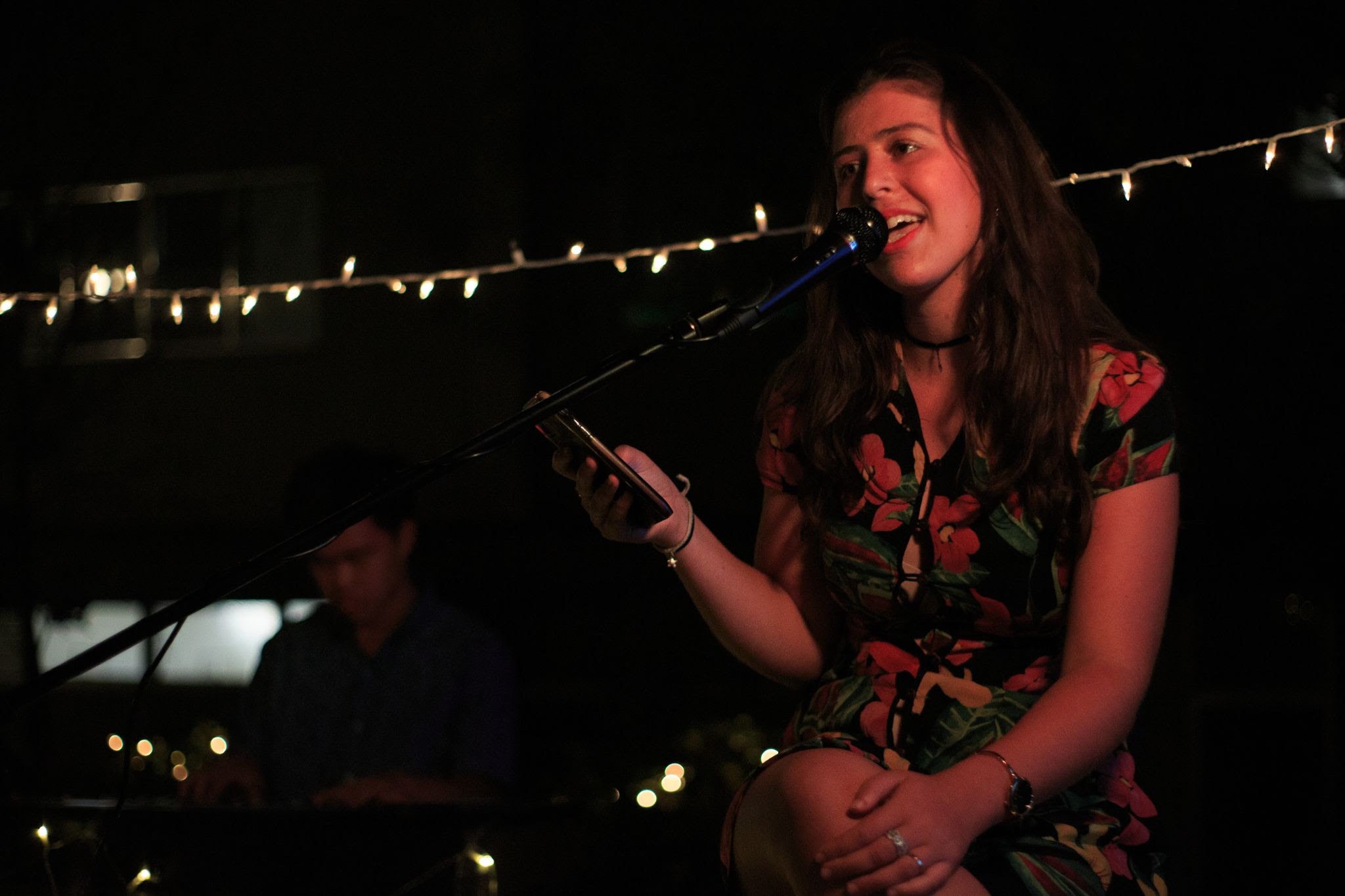Before starting her frosh year, vocalist and entrepreneur Julia Rose Segal ’25 had already formed her own band, started a nonprofit and made a guest appearance on the Kelly Clarkson show.
Then, just one week into her first quarter at Stanford, she released her debut EP, “Staring at Ceilings.” With over 1,000 streams in the first week after its release, “Staring at Ceilings” is already making waves.
The inspiration for the EP’s six tracks ranges all the way to Disney’s “Moana” and Eminem.
“In my very first collection of released songs, I explore all of the feelings and emotions I went through during a seemingly endless quarantine,” Segal said. “I hope that whether it’s the feeling of not being content with your life in the title song, ‘Staring at Ceilings,’ the feeling of replaying scenes from a night out over and over, in ‘What I Did Last Night’ or the feeling of wanting someone to be a person they’re not, in ‘3 a.m.,’ everyone can find a song or emotion that they can relate to. And maybe the songs in this EP can make it a little easier for someone to get through something that I went through.”
Segal, who grew up in Palo Alto, was introduced to music at the age of four when she started piano lessons. She also sang with iSing Silicon Valley Girl Choir for eight years.
“Choir actually shaped a lot of my sound as a musician, and shaped the way that I layer harmonies and assemble a choir using my voice, which is something that comes up in a few songs,” Segal said.
Though the EP is Segal’s first collection of released music, she has been writing songs for years. It wasn’t until the summer before her sophomore year of high school, however, that she claimed this identity of a singer-songwriter at Interlochen, a summer arts camp in Michigan.
Throughout the camp, Segal was prompted to write from her own experiences and emotions. “Before Interlochen, my songs were often based on fictional things because I didn’t think I had anything to write about,” Segal said. “But I started to understand how I can tell my stories through music, and also see viable paths forward.”
Soon after the arts camp, Segal’s friend invited her to a concert in Palo Alto where several local bands were performing. “The energy in the air was so high,” Segal recalled. “The venue was filled entirely with musicians, and there was just such a cool energy radiating around the room.” There Segal discovered the city’s underground music scene: “Although Palo Alto isn’t New York City or Los Angeles, there’s still a pretty big music scene. It’s just a bit hidden.”
At that concert, Segal met Greg Kochnev (stage name Citxzzen), who would soon become a collaborator and bassist in Segal’s newly formed band, Reverie. Kochnev also introduced Segal to Nicco Sanchez, who produced “Staring at Ceilings.”
“My first impression of Julia was that she’s hella funny and a lot of fun to hang with,” Kochnev said.
Until COVID-19 hit, Segal and Reverie performed every weekend at venues across the Bay Area.
“We actually performed at CoHo!” Segal said. “That was one of my first experiences collaborating with other musicians on music that was mine. I’ve been in choirs and groups before, but it was totally different when they were performing my music.”
Through these performances, Segal quickly formed a prodigious network of musicians, which went on to become the foundation for Segal’s nonprofit organization, QuaranTunes.
Founded at the start of quarantine, the group pairs teen musicians with children for virtual music lessons. The charity has expanded beyond its original purpose, now also offering instrument donations, group art lessons and summer camps.
From a hometown operation to an international organization with thousands of contributors, QuaranTunes would be an enormous time commitment on anyone’s plate. Still, Segal found yet another creative outlet in the meantime: writing her debut EP.
Now, having met new friends-turned-collaborators at Stanford, Segal looks forward to producing her latest song “Rain” with fellow student and award-winning film scorer Caleb Liu ’25.
“I saw a song in Julia’s Notes app that I could play the chords for,” Liu said. “I went over to the piano, played the chords, and she started singing. I’d never worked with a singer before, and it was really cool. Right after that, she said, ‘We should make this a real song.’ I was like, ‘Oh, this is something special.’”
When asked how she plans to move forward with her career, Segal said she’ll always return to her roots: “Songwriting has been therapy for my whole life. Instead of writing out my thoughts in a diary, I’ll just write them into a song.”
